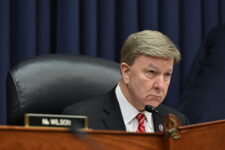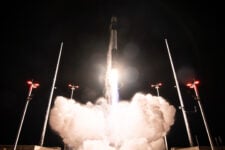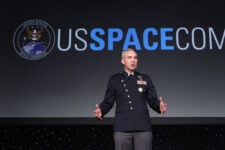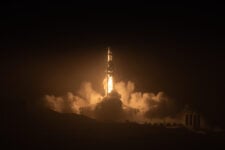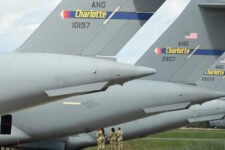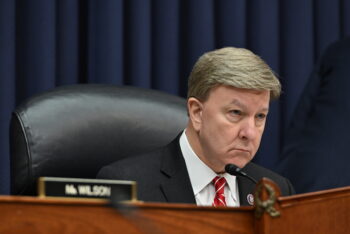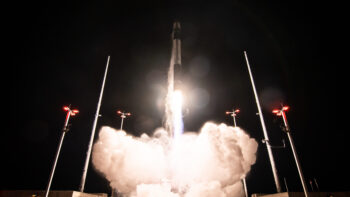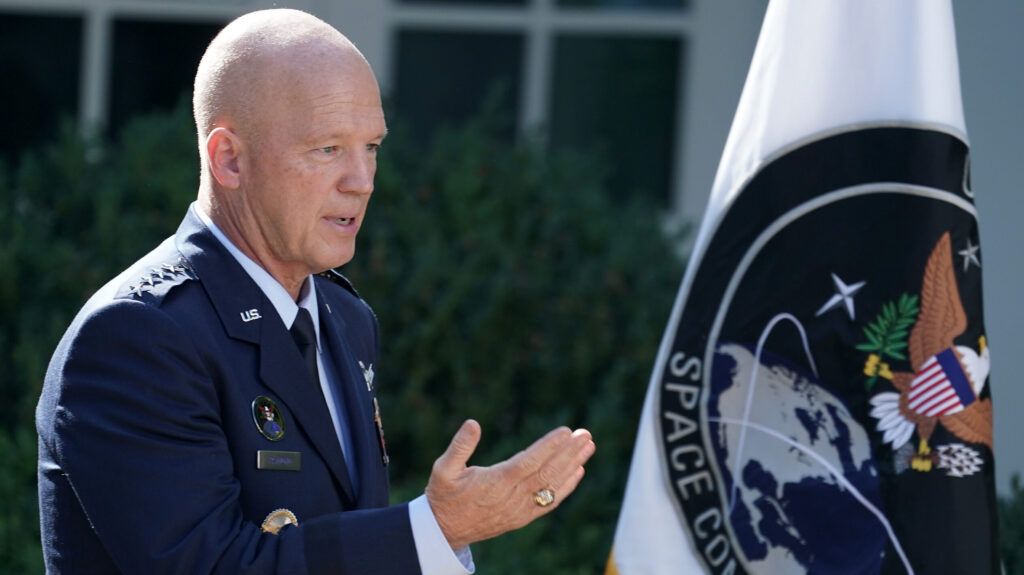
WASHINGTON, DC – U.S. Air Force Space Command Gen. Jay Raymond (Photo by Chip Somodevilla/Getty Images)
WASHINGTON: Pentagon leadership has narrowed the potential nominees to become the next Space Force Chief of Space Operations to two names, with the decision now in the hands of the White House, multiple sources tell Breaking Defense.
The pick of the two candidates — Lt. Gen. John Shaw and Lt. Gen. Stephen Whiting — would become the second Space Force head, following Chief of Space Operations Gen. Jay Raymond’s planned retirement in the fall. While it is still possible the White House could look to add a third name to the finalists, the expectation among the sources is that Shaw or Whiting will emerge as the next top Space Force officer.
Requests for comment to the White House were not returned. Spokespeople for the Office of the Secretary of Defense and the Space Force declined to comment.
Shaw, who has a masters degree in astronautics, currently serves as SPACECOM deputy commander. He is widely considered as future-oriented on questions about the military’s role in space. For example, he co-authored an article, “Sailing the New Wine-Dark Sea: Space as a Military Area of Responsibility” [PDF] in the Air University journal “ÆTHER” that outlined a new strategic view of space.
Whiting, the head of Space Force’s Space Operations Command, comes from an educational background that is more management focused. A handful of knowledgeable sources both inside and outside the Pentagon have described Whiting as known for his cautious approach and behind-the-scenes bureaucratic skills.
Both men attended the Air Force Academy as undergraduates — Shaw with a bachelors of science in astronautical engineering and a minor in Russian, Whiting with a BS in aeronautical engineering.
Having just passed his 60th birthday, Raymond has overseen the sometimes tumultuous overhaul of how the US military thinks about and intends to operate in space — all the while navigating a beady-eyed Congress, a wary Air Force and a somewhat resistant Navy and Army.
Raymond, who was named as the founding Space Force chief in December 2019 and for a year also wore the commander’s hat at Space Command, is said by several sources to be retiring this fall, most likely at the end of September. While his maximum term could extend through 2023, top officers retiring after three years is hardly unheard of, especially given the stresses of standing up a new military branch.
One factor to consider is that Raymond’s path to a higher-level job — which is to say, one of the leadership roles on the Joint Chiefs — is largely blocked. Adm. Christopher Grady was elevated to vice chairman of JCS on Dec. 20, 2021, and so that role is closed to Raymond. And while in theory the chairmanship could open up when Army Gen. Mark Milley retires in 2023, the wide expectation in the defense community is that current Air Force Chief C.Q. Brown is next in line for that seat.
This is because the position generally rotates among the services, but former Air Force Chief David Goldfein was passed over by the President Donald Trump in favor of Milley — upsetting the normal rotational flow and meaning that the Air Force’s turn at the joint helm is way past due.
HASC chair backs Air Force plan on space Guard units (Exclusive)
House Armed Services Chairman Mike Rogers tells Breaking Defense that Guard advocates should not “waste their time” lobbying against the move.
